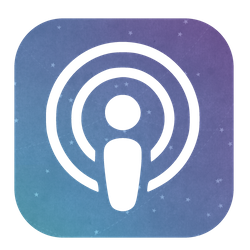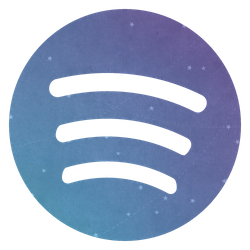episode 44
“Am I Going to Make Enough Money This Month?”
If you want change to happen, you might have to do something different than you’ve already been doing.
Today Sam & Karyn discuss how your money stories can affect the decisions you make, and how to consistently hit your money goals each month.
Episode 44: "Am I Going to Make Enough Money This Month?"
Show Notes:






Episode Transcript:
Karyn Paige, Sam Munoz
Sam Munoz 00:00
that feeling of instability is also connected to safety. And before we even move into like strategies and things about like that specific topic, I also want to like hold space for anyone who is like, in personal life in past, my past history and all of these things like I haven’t felt stable, I didn’t feel safe, because that is going to inform how you show up in your business. You know, like the way that you look at money, the way that you look at money in your personal life, or the way that your parents looked at money and your childhood, all of those things are going to really shape the way that you see that question of am I going to make enough money this month? Welcome to Making website magic where we empower women to step boldly into their web design businesses follow their intuition and claim the success they’re worthy of. I’m Sam Munoz.
Karyn Paige 00:55
And I’m Karen Page, where the Tech Wizards behind Sam Linnaeus consulting on the making website Magic School of Business, where two women here to talk about what it actually takes to run a web design business that’s aligned with your vision.
Sam Munoz 01:08
Spoiler alert, it probably isn’t what you think it is ready to hear about everything from refining your business vision, networking with intention and creating a magical client experience. Let’s do it. Well, hello there, Karen.
Karyn Paige 01:25
Hey, Sam, how’s it going?
Sam Munoz 01:28
It’s going well, I am looking forward to our topic, as always, right? When am I ever not? But we’re talking about am I going to make enough money this month. And I feel like this can be a really tricky or possibly like triggering subject because it’s about money. And it’s like about that fear that a lot of us have like this is really like a quote, write a quote from internal brain of like, I’m laying in bed. And I’m curious and nervous and scared and anxious. Like, am I going to make enough money this month for X bills, savings, etc?
Karyn Paige 02:00
Yes. But also like on the bright side? If this is a question that you’re having at three o’clock in the morning, while you’re laying awake in bed, this episode can ease some of that anxiety and that fear because we’re going to talk about let’s just talk about
Sam Munoz 02:15
it. Right, like strategies that you can implement to stop having to ask that question. And then also ways that you can change and shift your mindset to help you see what is possible instead of what is just right in front of you. So the reason that we’re talking about this really is because this is a question that I think we have all probably asked ourselves in business at one time or another doesn’t really matter even how quote unquote successful your businesses, you might see yourself asking this question over time. For example, like maybe the first time you asked this yourself this question is like, you have no clients and you need to make like $1,000, right? And you could be asking yourself, am I even going to get to $1,000 this month? Right? That could be a time that you’re asking yourself this question. But then on the flip side of that, your business might start seeing success. And you might start having really awesome months where you’re making like 5000 $10,000, but then the next month, there’s like crickets, right, you don’t get any new inquiries, you have projects that you’re working on. So maybe that month you make like $1,000. And that like peak and valley can be really stressful on both ends of the spectrum. So I feel like this conversation definitely extends to both types of situations that you may experience.
Karyn Paige 03:30
Yes, like, let’s normalize this idea that business owners have peaks and valleys, no matter what income amount you are trying to get to, or possibly have had, and are trying to get back to
Sam Munoz 03:46
totally. And I feel like the root of all of this is just that uncertainty, that not knowing what’s going to happen next. And also not knowing what’s going to happen, like six months from now, right. And that is like an inherent part of owning a business for sure. Like that, like in certainty. It’s not as quote unquote, stable. But I do think that like a nine to five corporate style job has a more perceived stability, but it’s still I mean, everything can always change, right? Like the company can go under and you could lose your job, like stability is really more of a mindset thing, honestly than it is like a reality. Wouldn’t you say that? That’s true? Dang, Sam.
Karyn Paige 04:23
Yes, it is true. It is true. And for a lot of us, depending on on where we are in our businesses, sometimes it can be really tempting to like go back to a job where we get a consistent income every two weeks, like you know, direct deposit, but you really nailed it on the head like even those, quote unquote consistent paycheck jobs aren’t guaranteed stability because a lot of things can happen and that’s just life. And part of running a business is learning to really like accept the potential instability, but also choose what you’re adding shoot is toward that potential instability, and also decide and design ways to be more consistent. So you minimize the peaks and valleys, and it is more of like an even keel flow.
Sam Munoz 05:14
Totally. And I do like, I want to acknowledge the fact that that feeling of instability is also connected to safety, right. And before we even move into like strategies and things about like that specific topic, I also want to like hold space for anyone who is like, in personal life in past, my past history, and all of these things like I haven’t felt stable, I didn’t feel safe, because that is going to inform how you show up in your business, you know, like, the way that you look at money, the way that you look at money in your personal life, or the way that your parents looked at money and your childhood, all of those things are going to really shape the way that you see that question of am I going to make enough money this month? And obviously, like, I’m not a therapist, Karen, like, we coach people, right? And so that’s really about like, helping you see, and uncover things about yourself. And then doing that deeper work is sometimes required to like heal your relationships with things. And that’s like, I just want to like hold space for the fact that like, what we might be bringing up today may make you pause and think like, Why do I feel that way? About money? Why? Why am I afraid and nervous about scarcity? Why don’t I feel safe to project into the future? And so just want to, like, call that out and say that if those things come up, that’s okay. And that could be an opportunity for further self reflection, or honestly, like seeking support to heal those relationships, if that’s something that’s important to you?
Karyn Paige 06:46
Yeah, absolutely. It’s a tie on to that, based on our money, stories, and what we believe to be true and our past experiences that also influences the decisions that we make in our business today. And moving forward. So as we’re thinking about, like, how do you shift your mindset? Or how, what strategies do you need to do to close that gap, and minimize the peaks and valleys, that’s all influenced on what we’re bringing in to the decision making process.
Sam Munoz 07:15
Totally. And likewise, it is another thing that we’ve been talking about even more on the podcast lately is fully understanding who you are as a person. And choosing strategies or mindset shifts that align with who you are, versus just like someone telling you, you should do this. Again, it’s like, here are some things that you could try, find the one that feels right for you find the one that feels like it’s stretching you out of your comfort zone just a little bit, but you have confidence to go out and try it. So when we’re talking about the strategies, I want you to keep all of that in mind, really keep in mind, the fact that some of them might be like, I don’t want to try that. Like, I’m not interested in that. And other ones might be like, huh, I think I could do that. That sounds like a way to solve this problem. So lots of kind of caveats. But also just like that fully, like acknowledging that we’re all individual people going in our own paths in life. And the way that we’re going to hear this information is going to be different because we’re filtering through our own lenses.
Karyn Paige 08:08
I want to talk about maybe like a couple different scenarios here, right? Because if the question is, am I going to make enough money this month? That is a very real in the moment question. Like, let’s imagine it’s the 15th of the month, and we’ve got until the 30th, or the 31st. And you’re like, how am I going to get to my goal? That is one scenario when reality. But then when you zoom out, there’s this idea of how am I going to make enough money this month? Long term? It’s not just this month, I don’t want to be here again, next month on the 15th asking myself the same question. So how do I smooth that out and go from like, a short term to a long term? So it’s, it’s like, there’s two situations kind of,
Sam Munoz 08:51
yeah, and that’s, that’s really like the I think that’s like the crux of this question is, it’s that feeling of like, okay, I got the client for this month, but like, what am I going to do in February? Or what am I going to do in April when this client project runs out? And that’s like real, that’s real stuff. Right? So let’s talk about some of the strategies and kind of weave the mindset in as it makes sense, but definitely like one strategy for that fully like real in the moment, it’s the 15th of the month, you have 15 days until you have to pay your rent like whatever or you know, do the bills or whatever the case may be. Creating cash injections in your business is such a cool strategy that you have access to literally whenever you want. Did we do an episode I believe about book now work later? Yep. So we’ll make sure to link it in the show notes. But that whole concept is a cash injection. It’s saying like I want to book projects right now that I’m going to not work on until later but I want the money now. That’s creating a quick I’m going to come back to the work quick but that’s creating a quick influx of money into your bank account right and you can do this in so many different ways. You can do something like book now work later, you can say I’m going to host five I’ve paid consultation calls. And you can reach out to your past clients and let them know or to prospective clients who were like a not yet for a website, right? Like you can reach out to your contact list, you can offer some sort of VIP day where someone gets like five hours of your time to do any work on their website, you can offer something to your past clients where you’re like making them a new landing page for their new offers, I hope your lady there like, like we can pause, write this stuff down. Because like, these are actual strategies that you can implement to create an influx of cash. And to circle back to the word quick, really quickly. What I mean by that is, it’s something that you can like sit down on a Wednesday, right? Like, I’ve got three hours on this Wednesday, I’m going to sit down, I’m going to write out 15 emails to pass clients and I could potentially create for myself like $2,000. Like, that’s what I mean by quick. You know, you don’t have to like create the package and the workflows and like all this back end stuff, you can just get the money today. That’s the thing by quick.
Karyn Paige 10:57
Yes. We’re not saying go out and craft a new offer with like all these bells and whistles. And then you have to like create workflows and new proposals and new templates and things like that. It’s literally what do you have right now that you can just remind people of and directly go offer?
Sam Munoz 11:14
Right? It is really like, again, that first aspect of the question where it’s like it is in the moment, I need to make some money like this is how you can do it. And again, this is available to you at any time, if you’re just like, You know what, I want to make a little extra money this month, I’m going to offer this thing like you get to fully choose that we have a mini training in the making website, Magic School of Business, mentorship, all about expansive offerings. And we like I just gave you like a little taste of some things that you could try. But there are so many options, in terms of like, I want to make some extra money, I need some extra money. This is how I can do it like that is available to you if you need an extra $2,000 in your bank account this month that is available to you. Yeah,
Karyn Paige 11:57
and so okay, that’s one scenario. And that can be very helpful for the right now short term trying to get to the last two weeks of the month to meet my my goal, right, but then we’re thinking long term. And so there’s there’s other things that you can do to forecast more consistency. And that can look like ongoing work. So it’s really cool, because you can actually say, I want to do this cash injection this month. And I’m gonna take this thing to the next level. But what that option is going to be is offering ongoing work. Yeah, it’s so true. Not only can I meet my goals this month, but now I’m also making sure that I’m getting closer to my goals every month. And ongoing work can look like a lot of different things. I think the first thing that comes up for people is maintenance, right? Like, if you do WordPress, you can have someone pay you on a monthly basis to update plugins, themes, core etc. Right? But that if you’re not using WordPress, that’s not a helpful strategy or solution. But what other ways can you offer ongoing continued support to your existing clients?
Sam Munoz 13:02
What I love about this is that there are so many ways you could do it. And there’s so like, the income potential is really large. Because a past client, you built them the thing, right, you built them the brand, you built them the website, you built the design, you integrated all of the tools, whatever you did, you’re the one that created it, who better to maintain it than the person that created it, it is one of the easiest cells in this business is like continued support work. And I feel like there could be a potential like full podcast episode around that, or a mini training and the mentorship that we can create because there are so many things that you could offer for past clients. And the thing is that again, like that kind of stuff creates financial consistency. Because you can do that in so many different ways you can offer I’m like getting fully into the strategy right here. Because first of all, you could just say like, Hey, every month, you’re gonna pay me $500 This is what I’m going to do for you. So a, you know, $500 is coming in every month be you’ve spelled it out in that package exactly what you’re doing, like up to three hours of work, let’s say, right? And because of that, you can also not only project finances, you can project your availability even more than before, because you know that you’re doing this set of work up to that limit, right?
Karyn Paige 14:17
I want to bring it back to this idea of like, we’re not trying to offer something that we’ve never done before. Again, what do we have? What skills do you have? What do you offer? What do your clients need? That you can just say, Okay, now, I’m pivoting this into continued monthly support, right? And that can look like a lot of different things. So this is why it’s really important for you to know your business and know your clients. You could say, oh, well this would be a great opportunity for me to like start editing podcasts for my people because I designed their website when they’re podcast episodes. But do you already have podcast editing skills? Okay, if the answer is no, the maybe let’s pivot that into you can pay me to create show notes page for you, yeah, I create the show notes page for you. And then I can come in and load that for you. If you want, I can create the graphics for you, if that’s something that you’re in, you know what I mean? Like, let’s stick with what we know. And easily turn that into an offer, that lowers the barrier of entry for us to like, create new skills around it.
Sam Munoz 15:21
It’s such an organic conversation to with your client, like during the onboarding phase, you say, Hey, if you need support, but why don’t we craft together like a customized support plan for you, you could do that you could have packages that you’ve already set up. But like that can be a part of your onboarding process is creating future income for yourself? Like why not take advantage of that opportunity? Something I was going to say earlier to in this kind of connects to the the shifting of the mindset around, you know, the question of, Am I going to make enough money this month, is when you’re positioning and crafting continued support packages, I love to share what’s available to you. You can tell people, it’s a minimum of three months. So you know, for the next three months, you have that consistency in your income, right? Like there’s nothing stopping you from creating contracts like that. I mean, people do it all the time. And all sorts of different industries. There’s like Pest Control, they’ll say, like, you’re locked in for the next three quarters. And like, that’s not what’s wrong with that, like nobody questions it, because it’s like standard business practices,
Karyn Paige 16:21
right? Or you could say, if you book a full year, you can get a month free or two months for 10% discount, right? Because, again, some clients would prefer to pay once as opposed to getting a monthly charge. Yep. So that’s available to you to
Sam Munoz 16:38
the ongoing work, I think, cannot be overstated in terms of like how we can really create businesses that can grow. And like we don’t have to, like always be finding a new client. And again, you can do it in a way that feels good to you, too. If you’re like, I don’t want to do maintenance. Like I’m not interested in that. That’s fine. You can offer like content implementation, you can say, you can pay me this much money every month. And if you have a question about your website, I’ll answer it like you get to decide what’s included in something that like ongoing work.
Karyn Paige 17:08
Yeah, the other thing that I want to kind of zoom out a little bit and think about how this can help you shift your mindset to is like, you get a chance to really look at the numbers and be like, Okay, well, how many of these would I need in a month to feel safe? Medical, oh, turns out, I only need three, or I only need four, that feels so safe. And that can feel so attainable. And you might already have those three or four people on your contact list.
Sam Munoz 17:37
Totally, yes. And that really in terms of shifting your mindset that does allow you to set longer term goals. So instead of focusing on like the month to month, you’re now focusing on like six months from now or a year from now, which like that is stability and safety, because you’re looking at a broader picture instead of every single month going through that, like, I finally got that client. And I feel really, really good. And now I’m nervous about not being able to pay things and I got that client and you know, and am I going to get a client like oh my gosh, you know, that whole like, just mind game. But when you start focusing on those longer term things, it really does allow you to not only feel more secure, but honestly truly be more financially secure. So we’ve talked about cash injections, ongoing work, those are very, like getting paid part of things. There’s another side of the strategy, which is like the marketing piece, which is like the creation of opportunities, that’s what I see marketing as right. It’s like the creation of opportunities. And then the selling part is like the proposals and that’s where you’re making the money. But a part of creating consistent client flow. And a part of creating consistent financial consistency is having some sort of plan around how you’re creating opportunities for yourself. And so I feel like spending some time there could be helpful, just like, how do we go about creating more opportunities in a consistent way.
Karyn Paige 19:02
And when I think it’s kind of like having an awareness of what strategic marketing really is, right? And having a healthy understanding of marketing kind of being more of a long term strategy, right? Like if you’re looking for a cash injection, and you create one post on social media, that might not be the most strategic or effective way to get that cash injection return on investment totally. Unless you’re literally like hey, booking now booking now booking now and then you share that and tag people or I don’t know that that doesn’t seem ethical, but you know what I mean? Like you make it more direct.
Sam Munoz 19:42
I also feel like that’s it like we’re talking about that cash injection style strategy that’s really for like warm leads or past clients like that works really well with people that already know you already trust you. Whereas Yeah, like to your point the marketing is really a longer term process. It is like getting on a networking call it is going to an event and introducing yourself it is going into a Facebook group and saying that you can, you know, offering value and providing value. But like it being an over time thing that you’re consistently showing up to because you know that it’s going to create a flow of clients.
Karyn Paige 20:17
Yes. And so those things can actually be happening simultaneous, yes, like, you can say, I’m going to sit down for an hour, and I’m going to nurture my warm leads, and work on some cash injections that can have a return on my effort over the next two weeks. And then I’m going to spend another hour building out some more long term nurturing of contacts are making new connections in my strategic marketing plan. And that can look like I’m going to go to an event, or I’m going to add some value in an online group, or I’m going to network with a collaborator and see how we can work on referrals. Right. So all I asked you was a commitment of two hours, one hour spent over here, for short term goals, and one hour spent over here for long term goals.
Sam Munoz 21:04
And this is really, from a mindset perspective, taking me back to Episode 42, where we talked about like indirect direct revenue, generating tasks and busy work. And if you’re finding yourself staying in the busy work stuff, the stuff that’s not helping you make money and not even like long term or short term, you’re spending time doing things that really aren’t leading to anything, that is a great episode to re listen to, if you already listened to it, or listened to if you haven’t, because in that one, we really talked about more of the why behind why we gravitate towards busy work in the first place. Because that kind of stuff doesn’t have a place in a strategic marketing plan. A strategic marketing plan truly is about the strategy and like being very, very intentional with your time and how you’re showing up. And I love that you mentioned that too, that like it can happen simultaneously, you can be creating opportunities for yourself that are going to lead to money today. And in the future. And that is what a strategic marketing plan looks like. It’s creating that flow that like consistency.
Karyn Paige 22:04
And kind of like tying it back to the idea of safety, right? Like you can start to feel safer when you have something coming in right now. Or you know, hey, for the next few months, I’ve got this consistent ongoing work, I’ve made these cash injections happen. And then you can breathe a little bit more and trust that the more like long term stuff like the social media or the connections is going to have a yield and a return, maybe nine months from now or a year from now. And that’s okay, too. Right. So it’s less pressure on the long term strategies to come back to you real quickly.
Sam Munoz 22:40
Yes, and you know, this might be a tangent, but that makes me think, too, that like, if we’re reaching out to past clients we loved working with or reaching out to really warm leads. And we’re kind of driving that conversation and we’re being choosy about who we’re getting cash injections from. And so because of that, and if one of the intentions behind that is to create safety now, then we don’t feel like we have to be desperate for a client work that comes in and then say yes to projects that don’t feel good to us, where we’re going to be underpaid or not respected, just because we’re worried about the money. And so I feel like like, it’s like a two pronged strategy of the now and also for the future.
Karyn Paige 23:16
And then another strategy is truly like noticing where the money is already coming from and doing more of what’s working. Right. So this, we kind of mentioned it a little bit earlier, like, Hey, you don’t need to create something brand new, like what do you already got, where’s the money already coming in where the warm leads already living and do more of that.
Sam Munoz 23:38
I feel like there’s always this and I maybe it’s like a shiny object syndrome thing or whatever. But I feel like there’s always this, like, I have to try something new, I have to do something different. But it’s like, we can always go back to the data and look at like, Oh, this is this thing that I did here. Whether it be like this type of project, or I went to this event where I posted on Instagram, or I did a networking call that works like we don’t have to try a bunch of different stuff all the time. If we find something that works, it’s okay to like double down your efforts on those things and do more of that. Because that’s what creates consistency. It creates consistency in your own habits of doing the thing, and then it creates consistency in the results of more clients more projects.
Karyn Paige 24:17
This is making me think of something really specific. So it could also be possible that you’re like, I have a consistent client flow. I’ve got lots of past clients, I’m reaching out to people to you know, have those cash injection types of offers, and I’m still not meeting my goal. Okay. It’s possible that maybe what needs to get tweaked in that scenario? Is your price point.
Sam Munoz 24:40
Totally. Yeah, that is like I we probably should have said that in the beginning. That’s like the self identification of like, what is the money gap? Is it a lack of clients and opportunities? Or is it that your individual prices are too low, where you’re actually at capacity, so you can’t take on any more clients anyway, but you’re still not meeting your financial goal and that’s a big deal.
Karyn Paige 25:00
That’s a mindset shift, because the how is oh, just raise your prices. But then the mindset is how dare I feel safe to raise my prices? Because I don’t believe that they’ll say yes, or I don’t believe that I can do that. Or I think that in order to raise my prices, I need to add more stuff in to make it more, you know, desirable. And it’s like, okay, well, let’s let go of all that stuff. And just ask the quick question, okay, if you know that the thing for you is you need to raise your prices, whatever feels good to you, that you can just like confidently say,
Sam Munoz 25:32
yeah, it doesn’t have to be like the end goal, right? Now, it can be something that gets you closer and closer to what you actually want to be charging. Okay, I would love to take all of the strategy stuff and shift it a little bit more into some of the mindset pieces, which we already talked about, like instead of just thinking about, like today and tomorrow, setting longer term goals as a part of shifting your mindset, because then you’re no longer in this over and over spiral of being stuck. And you’re looking at the long term, and planning ahead. And I think that a part of all of this. And a part of the ability to do something like that is that you really have to start trusting yourself, you have to trust yourself to find the right client, you have to trust yourself to make good business decisions, you have to trust your prices. And you also have to kind of have like an overarching, like maybe universe trust of like, I know that the abundance is possible for me, and that if I do the work, and I show up consistently and all that stuff, it will come and that is a big shift of mindset. If you’re currently in a place of like, I don’t believe opportunities are gonna come to me.
Karyn Paige 26:38
Yep, there’s another piece that might be helpful for you. And that’s honoring the person that you were, while you’re in survival mode, right? Like, if you’re someone who’s like, it hasn’t been safe, I have been living paycheck to paycheck my whole life, I grew up that way. There have been times in my life where I thought I was safe. And then my whole world was turned upside down. And so I’m worried that that might happen again, okay, we honor that person. And what we also say is, that mode of being in that survival may have actually helped you get to where you are right now. And also, it can be safe to say thank you to that person and say, I don’t need you anymore. Because I’m not going to be in survival mode, I’m going to be in Thrive mode. And in order to be in Thrive mode, I need to like, put on a different coat. And I don’t need survival mode coat anymore. But thank you for your service, you can have a seat, and rest
Sam Munoz 27:38
who I’m sitting with that, because that is so true. And it’s like when you’re still looking through the lens of survival mode, then your choices are based off of that. But it doesn’t have to be that way. You can choose a new lens, you can assume a new uniform, really, that’s got me thinking.
Karyn Paige 27:57
Yeah, and so again, we’re not trying to stretch out of something that feels so uncomfortable that it’s scary, right? So you know, if you’re trying to bridge that gap from $1,000, to $3,000, it might actually take you two or three months or six months to do that safely. So let’s peel like, let’s kind of reel it back in and just say okay, what is like one thing I can do right now, to get me closer?
Sam Munoz 28:28
Yes, that’s making me think about how, if you want change to happen, you might need to do something different than what you’ve already been doing.
Karyn Paige 28:36
Yeah, a little bit of like tough love moment, that is exactly what needs to happen. Because of the things that you’ve been doing, the decisions you’ve been making, are a reflection of the situation you’re in. So if you want to be in a different situation, it’s time to make some different choices.
Sam Munoz 28:50
Yeah, and again, it’s not that’s not like coming from a shaming place that’s coming from an honoring the past and like, where you might have been and what you have seen and thought and all of your like your lens and your filter. But then saying, I want something different for my life, I want something different for my business. So because of that I’m going to do something differently. I’m going to stretch myself a little bit, I’m going to learn what I have to learn to charge more, I’m going to go to that networking event and actually hand some of my business card I’m going to take intentional action. Because the truth is like we are in charge of the business and the opportunity and we’ve talked about this on the podcast several times but like the opportunities are not going to just walk through the door. I mean sometimes right like that just happenstance it happens but like positioning ourselves and taking action and going out in like seizing those opportunities. That is what is going to help you create financial consistency. So you’re not asking this question, month over month, you are like really taking your business into your own hands.
Karyn Paige 29:52
Yeah, you know, going back to this idea that, you know, you might be the person who’s like I made $7,000 last month and this month I only made $3,000. And I really liked that 7000 I want more of that. Okay, well, there might be space in there to be like, when that money comes in, what’s your relationship with it once it’s there?
Sam Munoz 30:14
Yeah. Lots of things to think about.
Karyn Paige 30:16
Yeah, I don’t want to turn this into another Marvel movie after the credits easter egg. But it’s also like, Okay, well, 7000 plus 3010 1000 divided by two 5000. So how can we take a little bit from those $7,000 months, put them into the $3,000 months and get a little more balanced? Right, like, that’s another conversation that you can have. But that also ties back to like, how we feel about money and the safety we feel about it once it’s there? Do we want to hide it and protect it in a savings account? Or do we want to pay ourselves a little bit more?
Sam Munoz 30:47
Right? Yeah, that’s interesting. And it also to me connects to like the nature of this type of business where client projects are booked ahead of time and you know, paid in, in chunks, or sometimes they’re paid in full and one month and it does kind of throw off the numbers and really just like, I think that something we haven’t said, but is something to mention about all this is like noticing how you feel when you’re looking at your numbers like are you avoiding your spreadsheet and again, this is not coming from a place for me personally, it’s not coming from a place of like, I’m the best with money and like I my relationship with money is perfect. It’s an ever evolving thing. But noticing how you feel when you look at your bank account and you look at your you know, dubsado reports or whatever. And just like that relationship, I think just being aware of it and then if you’re stressing about how to find or create money opportunities, that’s what this whole podcast was about was strategies for cash injections, ongoing work and all that stuff. And then yeah, those those shifts in mindset that will help you can I leave
Karyn Paige 31:45
the listeners with two books that were really helpful in me shifting my money mindset, please? The first book was, you’re a badass at making money by Jensen cero. And the second book was get rich lucky. Beep bi Tch, by Denise Duffield Thomas, there are some exercises in there around money work healing, felt really woowoo at the time, but I gotta tell you, I did the work and I saw a transformation of myself. So we’ll link those books in the show notes. And if you haven’t money, mindset issues, maybe check it out from the library, okay. You don’t always have to buy it. Or like, Go halfsies with a friend and then split the book. You know what I don’t know. But those books were really helpful. They might help you too. We’ll link them in the show notes.
A Season of New Beginnings
Today Sam & Karyn make the bittersweet announcement to end the podcast as they step into a new season of life and business. They share what is to come for them, how you can stay connected to the Making Website Community and encourage you to be open to new opportunities, too.
Season 02 in Review
Today Sam & Karyn look back on season 02 of the podcast, celebrating successes in the mentorship, launching our free community, the future of the podcast and Making Website Magic at large.
People-Pleasing as a Web Designer & Developer
Today Sam & Karyn discuss people-pleasing, understanding that your business has needs and how to honor them in your client relationships.








